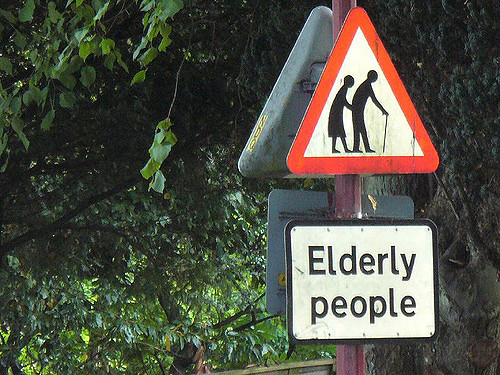
Whether they are your parents, your aunts and uncles, your grandparents, maybe just neighborhood friends, those elderly drivers you know are oftentimes at a higher risk of being in an auto accident.
That said what are you doing to help lessen the odds of such potential accidents?
No, you likely can’t be with them 24/7, but you can give them the resources and tools necessary to reduce the chances of being injured or even worse.
While auto accidents can happen to any age group, senior citizens are oftentimes placed in harm’s way, whether it is through their own actions or the actions of others.
So, what role can you play in helping to keep elderly drivers safer?
Education and Resources
In order to help those older individuals close to you reduce their odds for an auto accident, remember these four important tips:
- Education – First and foremost, educate senior citizens on the additional risks they oftentimes face when getting behind the wheel. The most notable item going against them is the fact their reflexes tend to slow as they age. As a result, they can be put at greater odds of an accident by not hearing, seeing, and reacting to a bad situation. That situation can even turn deadly in just a matter of seconds. Encourage them to take driver safety courses even when they are not required to do so in order to renew their driver’s licenses. Every extra bit of knowledge behind the wheel can turn out to be a lifesaver;
- Tools – When it comes to having the tools of the trade to stay healthy on the roads, do your best to make sure vehicles in the seniors’ in your life are properly fitted. From looking to improve safety with backup camera systems to early warning alerts when someone drifts out of their lane, keep them as safe as possible. If they tend to use their cell phones in the car, a phone mount on top of the dashboard (to right of necessary reading instruments for the vehicle) can help lessen distractions. Lastly, you can look into getting them a car care package, one that gives he or she coupons and/or money to go have their vehicles tested for things such as tire conditions, brakes etc. Any efforts made to give them the proper tools to keep them and others on the roads safe will make you feel better about them driving in the first place.
Helping Out When You Can
- Assisting – Even though you likely can be with an elderly parent or parents (or other older relatives or friends) 24/7, assisting them with errands, doctor visits etc. is something you should look into. By doing this, you may be able to set up a schedule where the elderly do not have to drive nearly as much as they otherwise would. Have a driving grandchild, another relative, and even yourself available when possible to take the elderly to their appointments, the store etc. This will mean less time for them behind the wheel, something that may relax you and them if their driving skills are starting to slip;
- Timing – Finally, it certainly can be difficult to suggest to an elderly loved one that it is time to give up the keys. Given many of them have been driving for multiple decades; it can be hard to voluntarily know when to get off the roads. That said be attentive to their skillset, looking for any noticeable changes over time. If you do need to have the discussion regarding possibly giving up a driver’s license, approach it carefully. It can prove to be quite a sensitive talk, one that should never come between loved ones and/or friends.
Just as younger drivers need to learn the rules of the road to start out, elderly drivers need to remember the rules and skills behind the wheel to keep everyone safe.
With the New Year just around the corner; considering paying a little closer attention to a senior in your life when they are on the road.